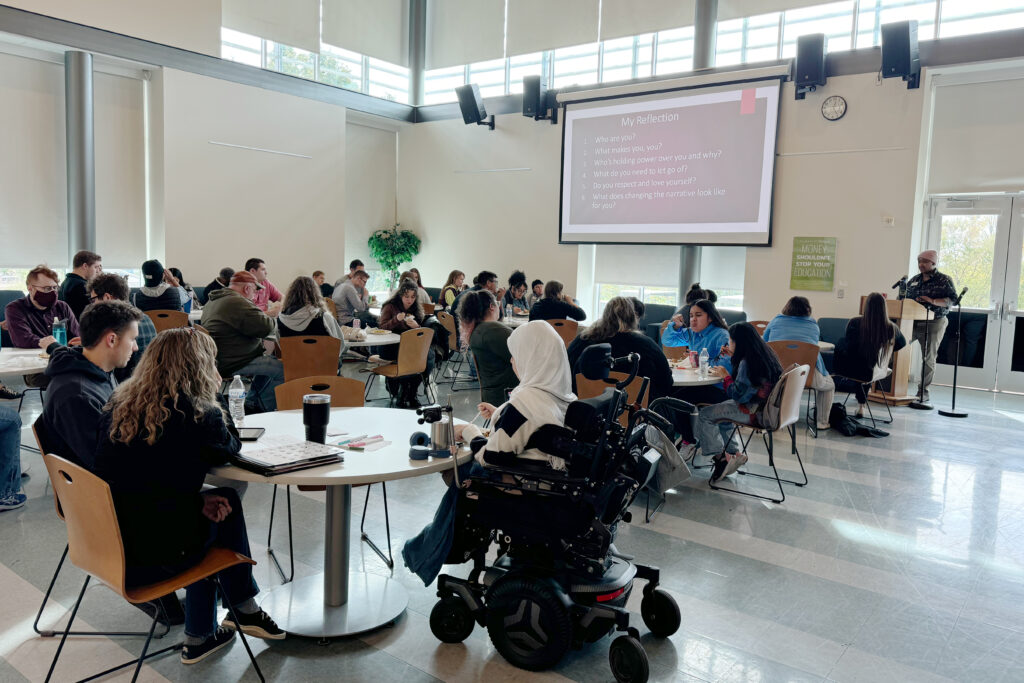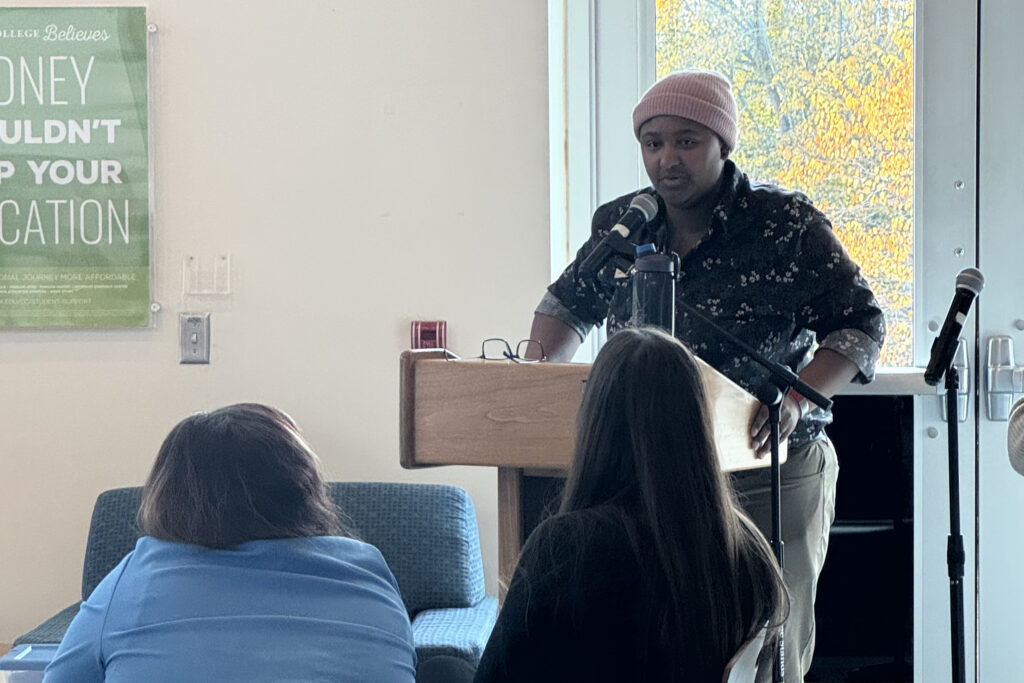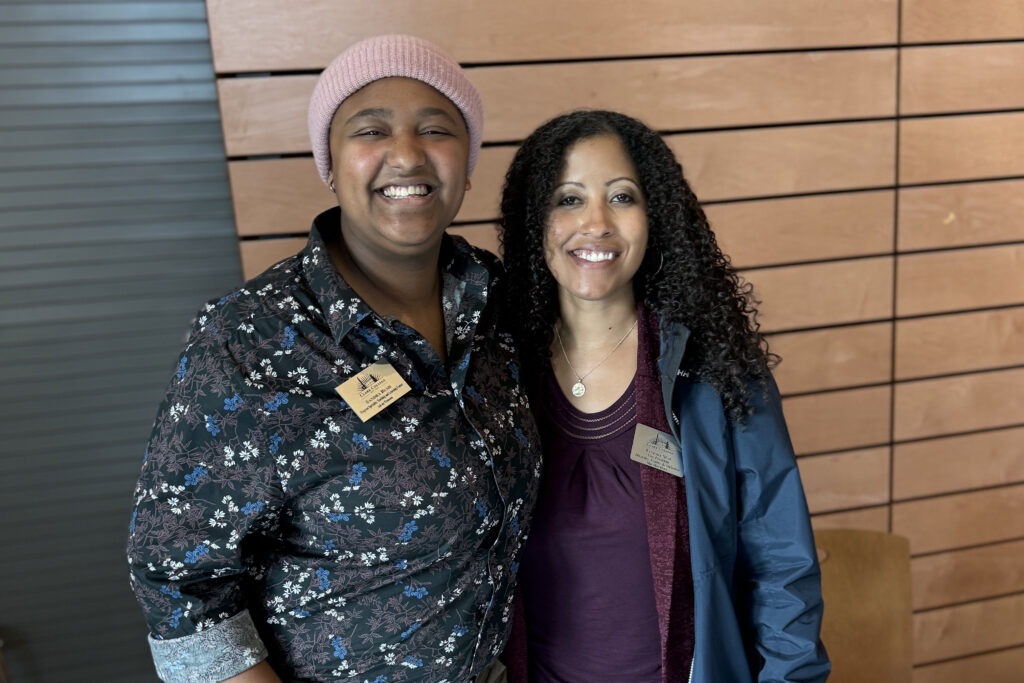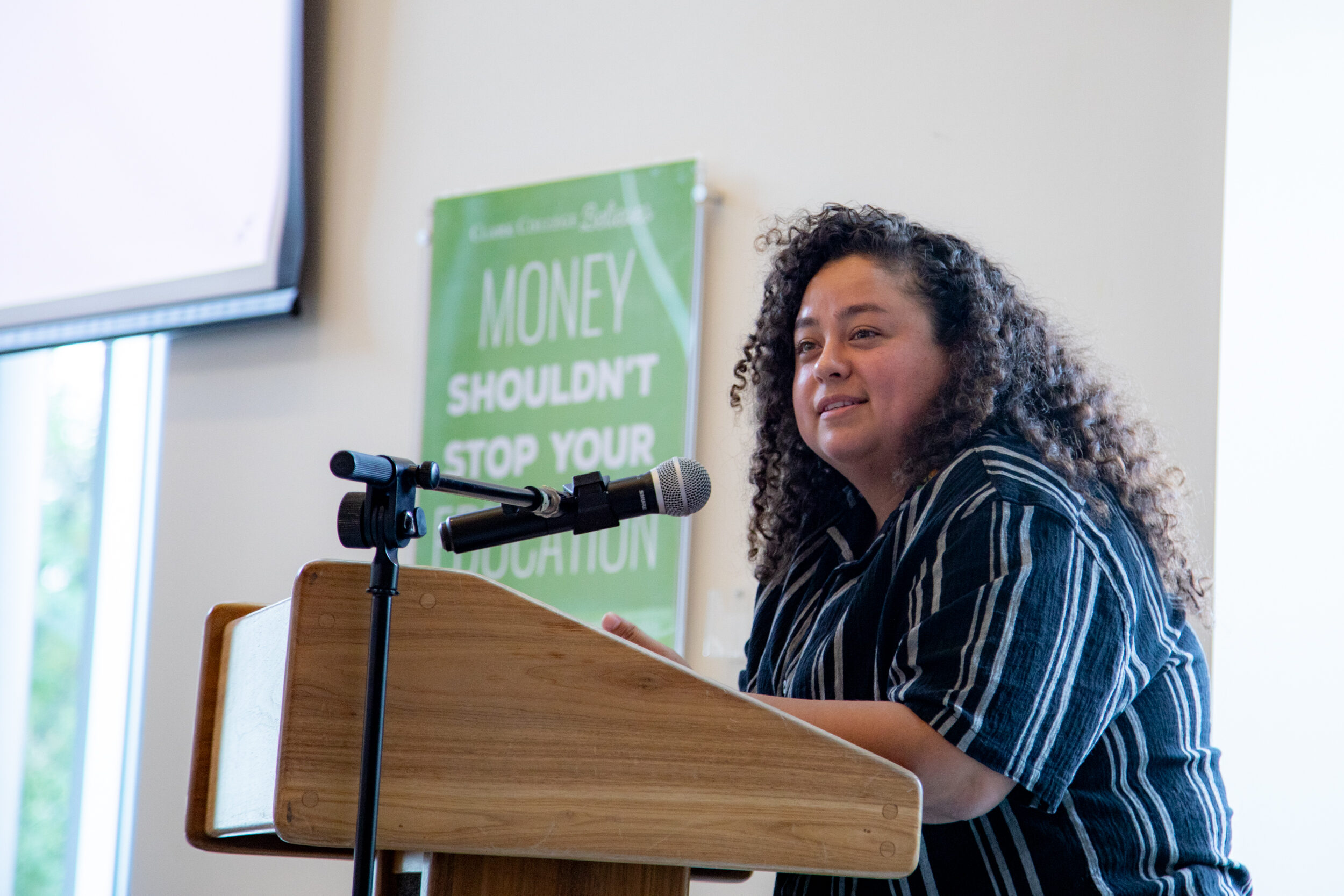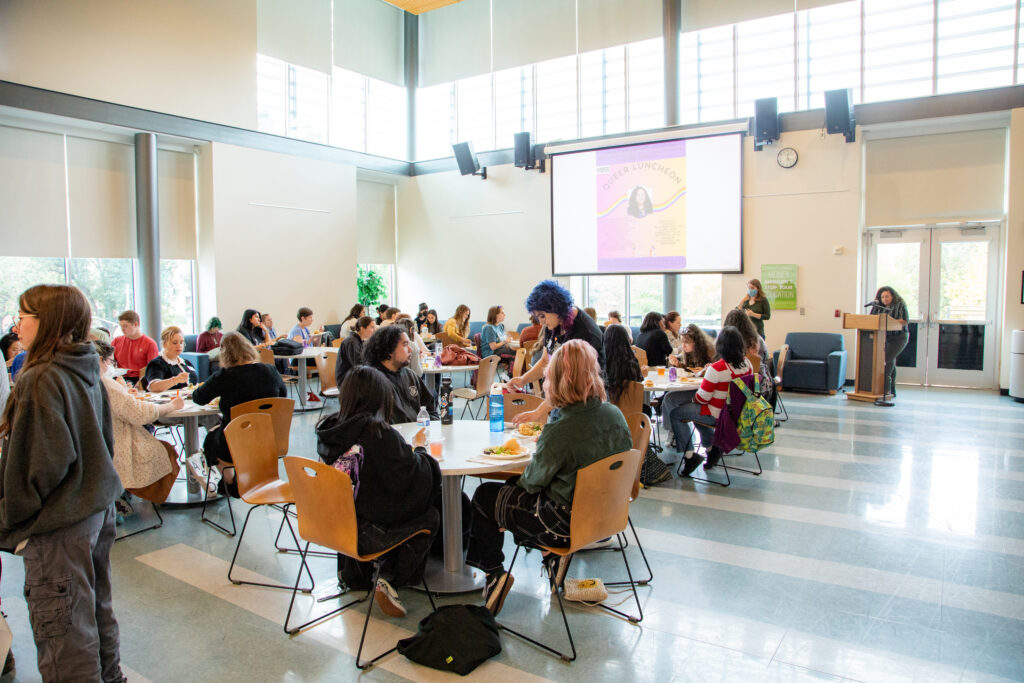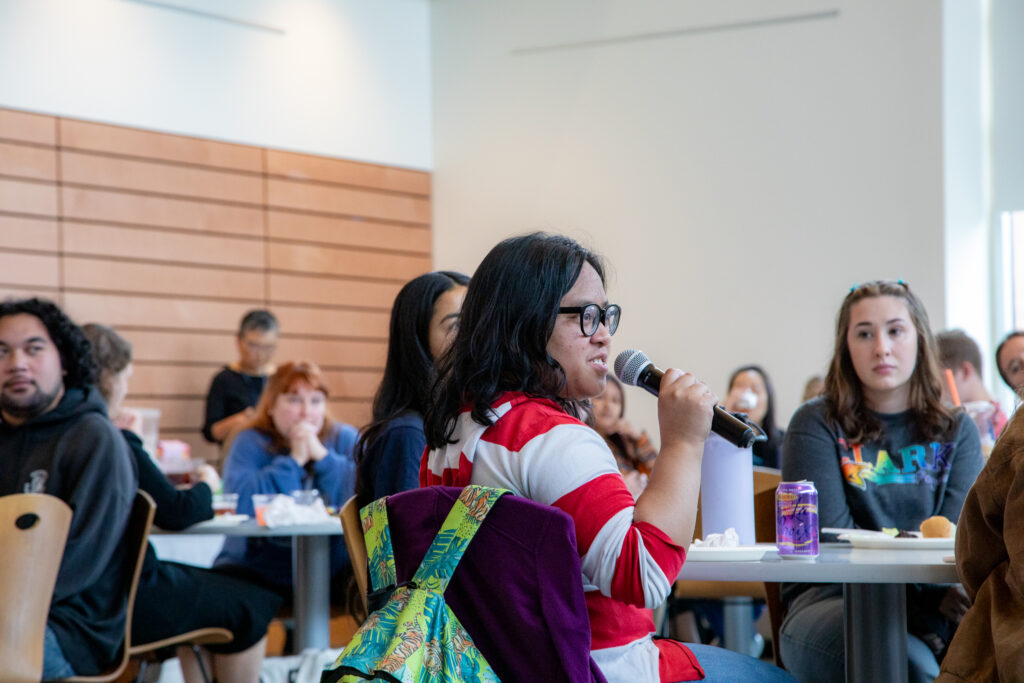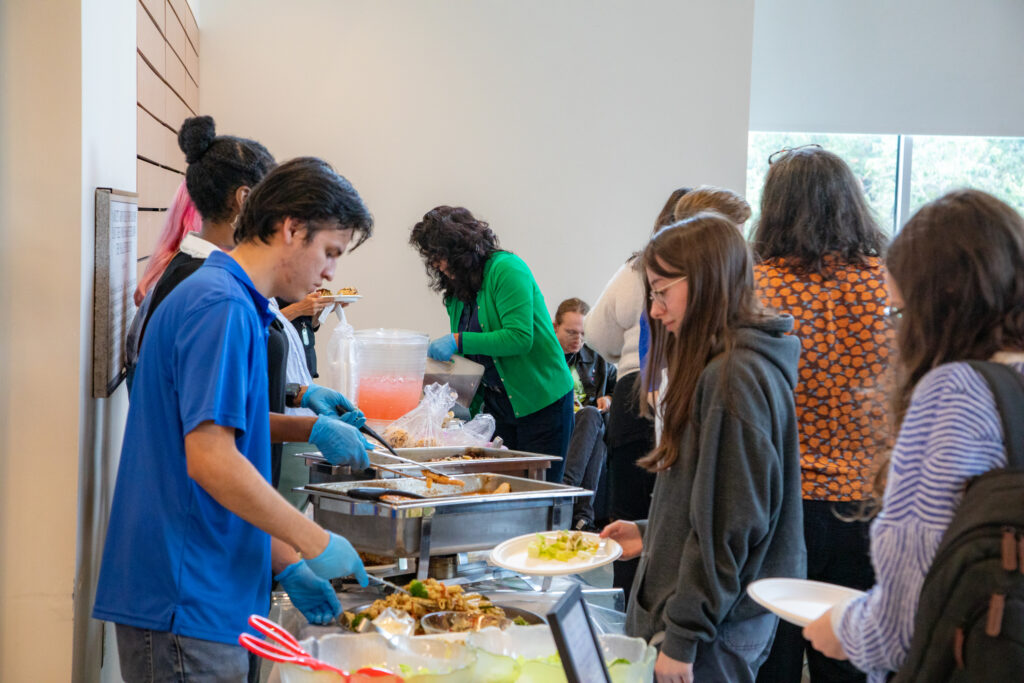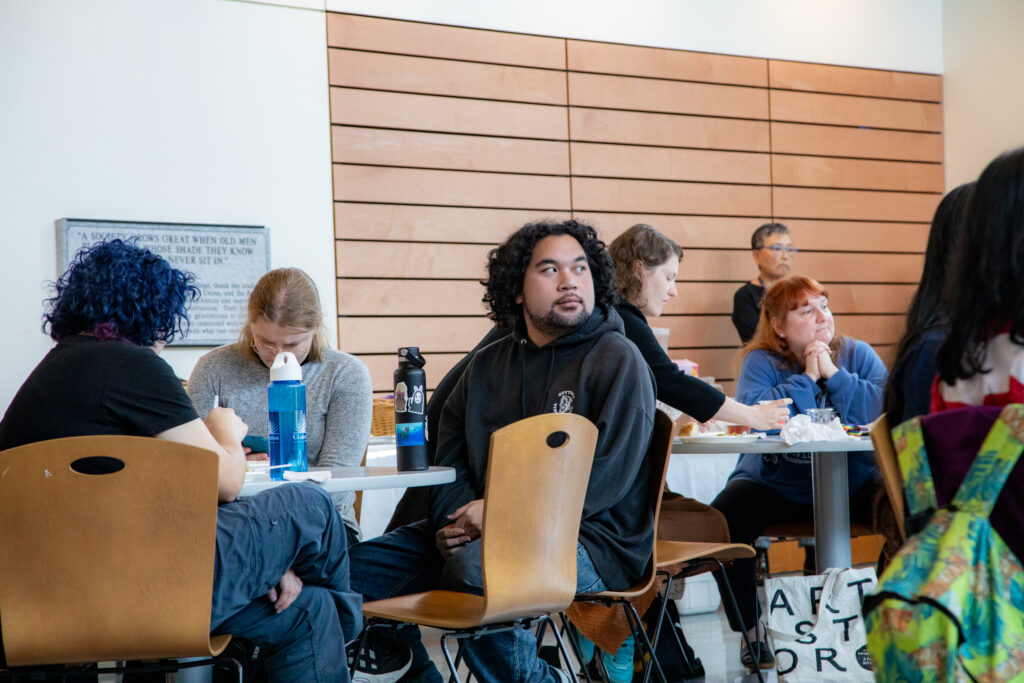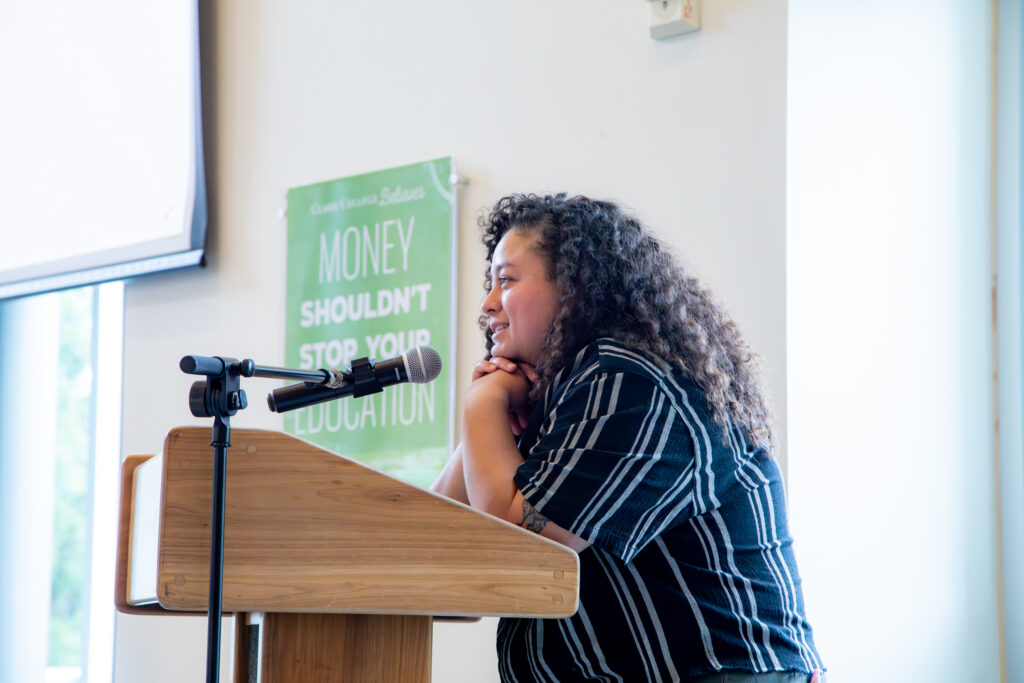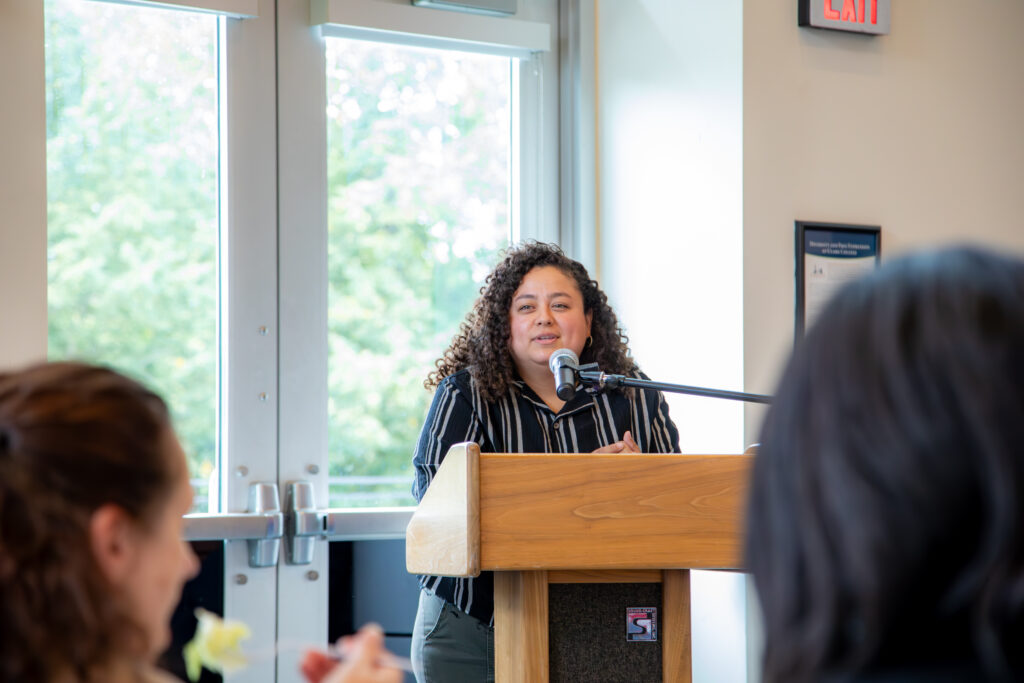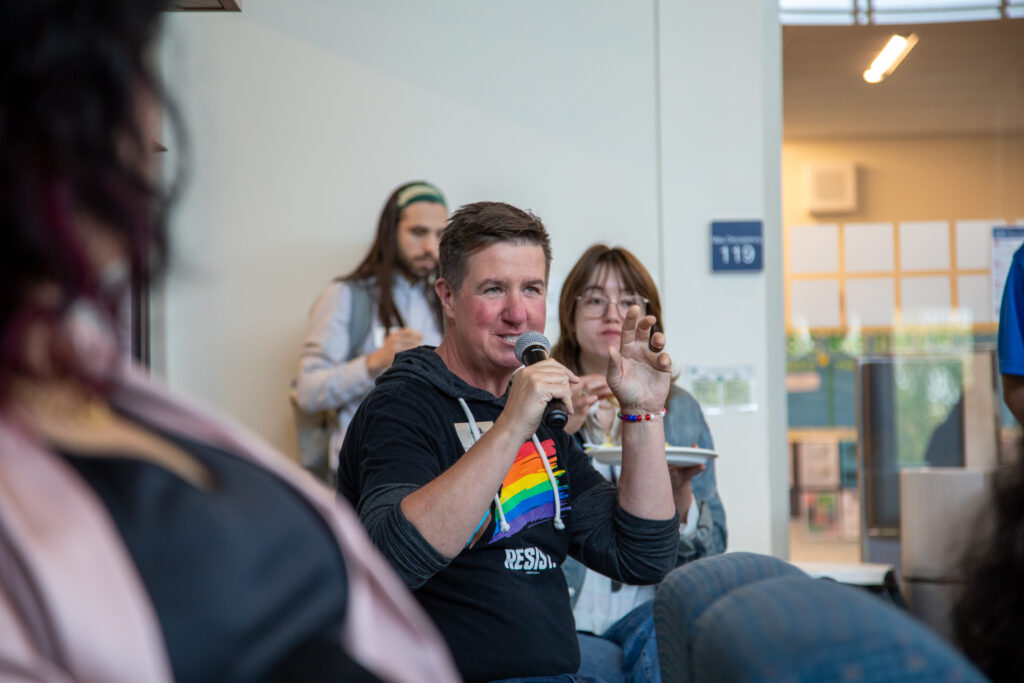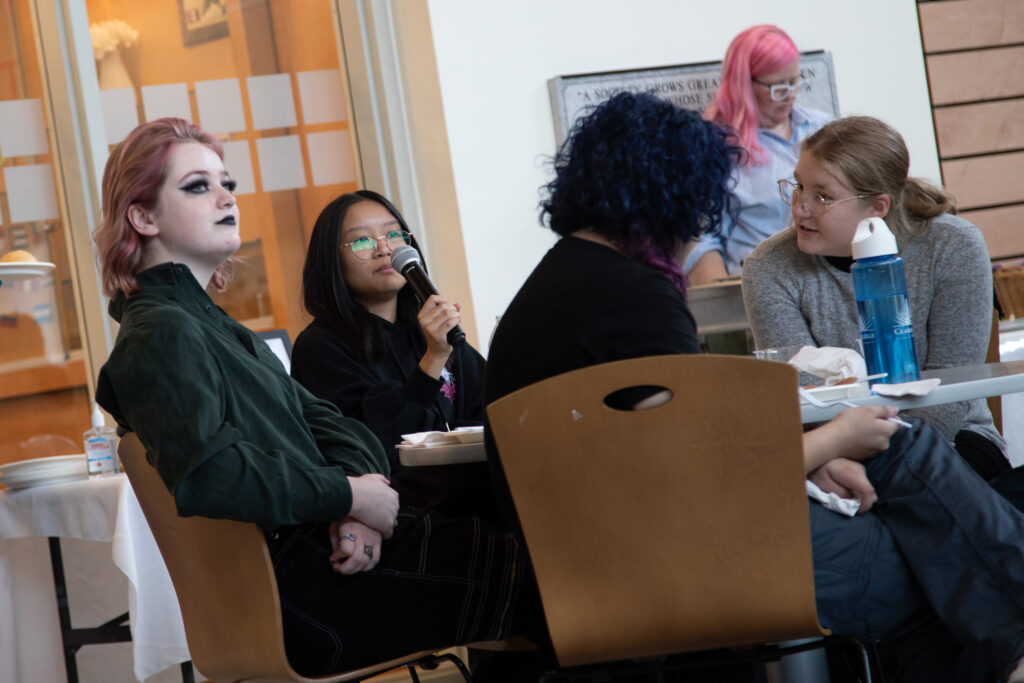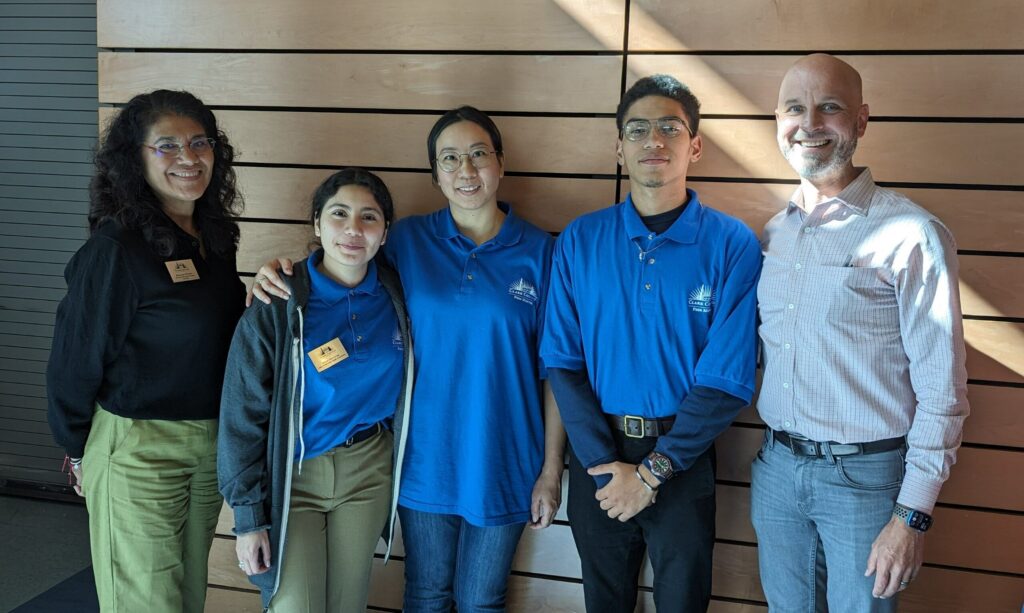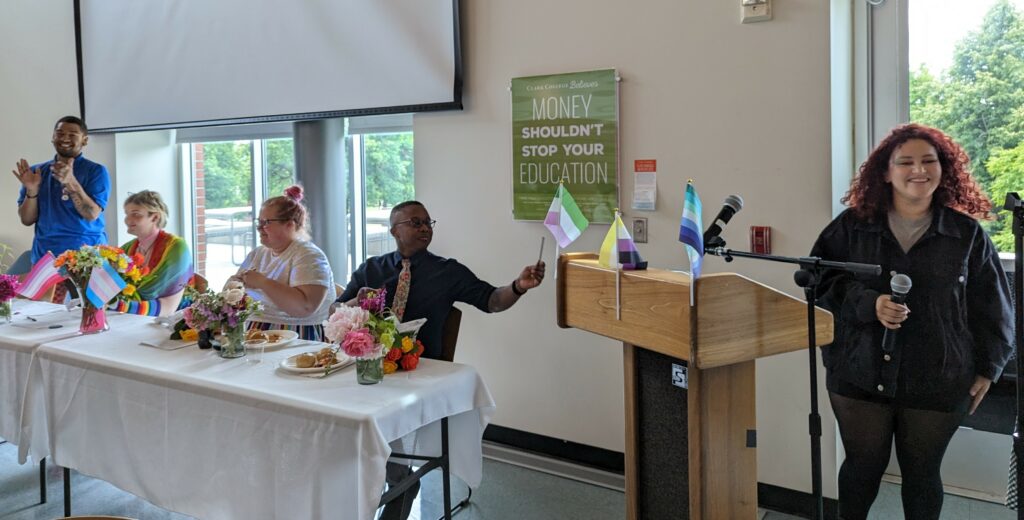Clark’s Leader Inspires Students of Color
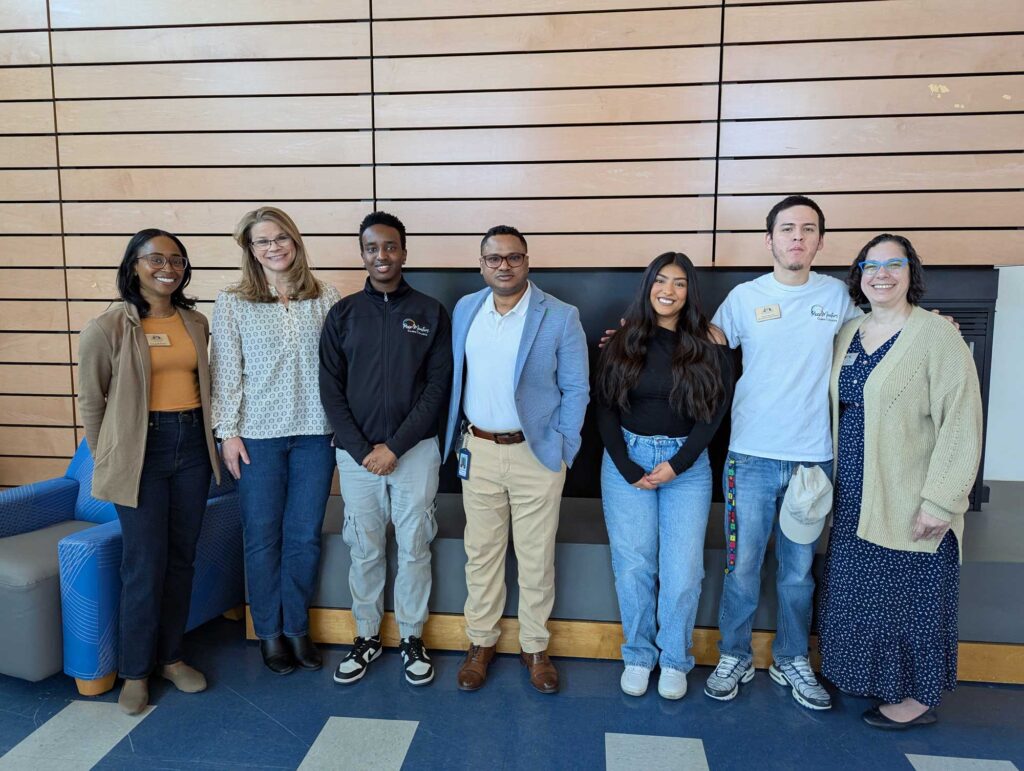
At Clark College’s Spring Students of Color Luncheon on April 17, Vice President of Information Technology Sudha Frederick delivered a powerful and personal message on the role of mindset in achieving success. Drawing from his upbringing in Hyderabad, India, and a life shaped by academic rigor and faith, Frederick shared six core attitudes that have guided his journey: gratitude, curiosity, integrity, concern, humility, and a solution-focused mindset.
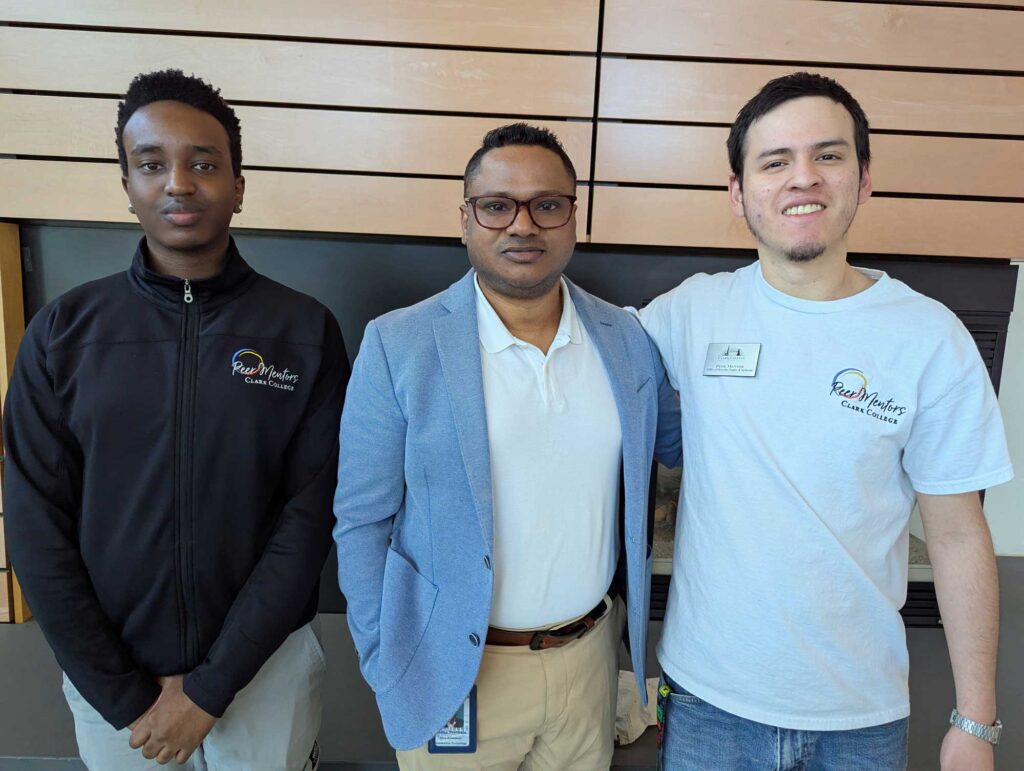
Hosted by the Office of Diversity, Equity, and Inclusion and Multicultural Student Affairs, the free, public event brought students, staff, and community members together for meaningful conversation and a shared meal.
Frederick spoke about growing up in Hyderabad, India and being the son of a professor at several Christian seminaries. He was influenced by both academic rigor and a deep sense of faith.
In his message titled “Developing Powerful Attitudes for Success: Attitudes and Aptitude,” he reflected on how each of these attitudes has played a transformative role in his personal and professional life:
- Gratitude – “An attitude of gratitude can change your outlook and your life,” he said, encouraging students to appreciate both small wins and major milestones.
- Curiosity – Frederick encouraged students to choose curiosity over complacency by being open to learning new things, understanding the “why” behind the “what,” discovering new perspectives, and solving problems creatively.
- Integrity – He emphasized the importance of growing organically, avoiding shortcuts, and building trust through consistent, honest actions.
- Concern – Frederick called on students to lead with empathy by choosing an attitude of concern by listening actively, responding with thoughtfully, connecting meaningfully with others, and contributing positively to your community.
- Humility – He shared how humility has helped him remain grounded, learn from others, and stay receptive to growth.
- Solution/Resolution – Finally, “be a problem solver, not a problem creator,” he advised, reminding students that focusing on solutions empowers them to take action and create change.
President Edwards who attended the luncheon, reflected on the impact of Frederick’s message in her weekly email to faculty and staff:
“Sudha shared that gratitude, curiosity, integrity, concern, humility, and a focus on solutions/resolution will enhance your chances of success. Thank you to Sudha for sharing this important message with our students, and to ODEI for hosting the event.”
Q & A with Sudha Frederick
Q: When did you know that you wanted to work in Information Technology? Did you experience an “aha” moment during which you realized IT would be your career path?
SF: I had the opportunity in my late teens to work at an e-commerce company when I moved to Finland. I started off with assembling computers and I loved it.
Q: In what ways has embracing these six powerful attitudes impacted your life?
SF: It has resulted in strong relationships with my peers and supervisors. I have been blessed in so many ways. My faith is what drives me to live by all of these attitudes.
Q: During your presentation you showed a photograph of a motorcycle. What type of motorcycle is it?
SF: I ride an Aprilia 1100 RSV4.
About Sudha Frederick
Sudha Frederick joined Clark College in April 2023 as the Vice President of Information Technology. Sudha brings 15 years of experience in the field of information technology and 7 plus years in serving in leadership positions in several non-profit organizations. He has a master’s degree in business administration from George Fox University, a master’s degree in ministry management from Multnomah University and a master’s in Sociology from
Madurai Kamaraj University. When away from work, he loves spending time with his family, church, playing the electric guitar, and riding his motorcycle.
In his VP role, Frederick is responsible for the organization’s technology vision and execution providing oversight of campuswide information technology activities, sponsoring IT committees, working with IT service units across campus, assessing current IT infrastructure and making appropriate recommendations and strategies to deliver timely and qualitative IT services across the University.
Sudha Frederick is passionate about building IT Teams to provide top notch IT services. One of his main focuses is to equip and empower his team to succeed by paying close attention to their natural potential and skillsets to set them up for success. He believes in transformational servant leadership.
Next ODEI Luncheons:
- Students with Disability Luncheon: Tuesday, May 13 at noon in PUB 161
- Queer Student Luncheon: Tuesday, June 3 at noon in PUB 161
Connect with the Office of Diversity, Equity, and Inclusion (ODEI):
- In-person: Diversity Center, Gaiser Hall 214
- Phone: 360-992-2292
- Email: diversity@clark.edu
- Website: www.clark.edu/cc/diversity
